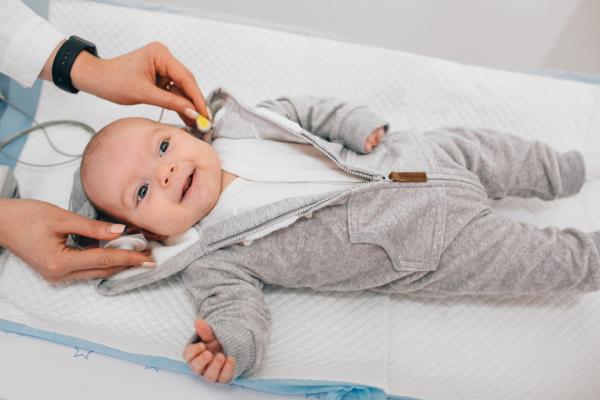Carole Levy
Back in the day, mums and their newborns remained in hospital for at least a week but nowadays it’s more like two days and they’re sent home. While lots of new mums are dying to take their bubs home, it can mean that the baby’s hearing screening doesn’t happen.
The neo-natal hearing screen is generally done in the first days, when electrodes are placed on the baby’s forehead, shoulders and neck and sounds are played through speakers. The technique measures auditory nerve activity and is known as Auditory Brainstem Response (AABR).
If the baby ‘fails’ the AABR test, another screening will be carried out within the next two weeks to confirm results.
Experienced audiologist from Active Audiology, Marina Opacak, explains what parents should look for in detecting potential deafness in babies and children up to school age.
“The main thing to notice in a baby up to six months old is that loud or unexpected noises don’t cause a startled response, or they may appear generally less alert,” Marina says.
“After six months, a baby with possible hearing issues won’t turn to a sound source. At 12 months, they won’t be saying “mumma” or “dadda” – a speech delay can be another sign in babies and toddlers.”
Most parents will be questioning their child’s hearing ability well before the three-year-old mark. At this age, children can be examined via Play Audiometry at an audiology clinic. Headphones will be placed on the child, with various noises played through the speakers that correspond to the game being played and elicit a response.”
Marina notes that hearing loss, which may be temporary or permanent, can develop after an initial neo-natal screening.
“In children older than three, warning signs can include having iPad and TV volume too high, asking often for words to be repeated, and not responding to being called.
“By school age, it may be a teacher who first detects problems, with students unable to hear from the back of the classroom, or certain behavioural issues arise or schoolwork is in decline.”
Temporary deafness can be caused by a build-up of wax in the ear or an infection, which can be attended to by a GP. Sometimes, grommets are recommended to drain fluid from the ears; this is a job for an ear, nose and throat specialist.
Babies and children with permanent deafness will be referred to Hearing Australia, with a hearing aid or other amplification system potentially fitted, and supports put in place.
Marina concludes with: “It’s important to diagnose hearing loss as early as possible since it can have a big impact on a child’s development, especially in the areas of language, communication and thinking.”








